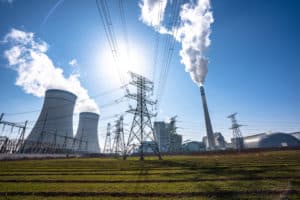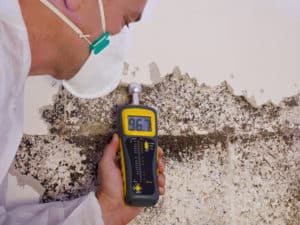With the clocks set to change and shorter days ready to tumble in, you may be concerned about rising fuel costs. Read our guide on how to keep energy bills down while ensuring your room stays warm.
As temperatures drop and daylight shortens, you may find yourself worrying about fuel costs. It’s the time of year when household expenses start to spike; however, managing your fuel expenses doesn’t have to mean compromising on warmth. With sustainable construction practices and energy-efficient choices, you can create a more cost-effective, environmentally friendly home that keeps you cosy all season.
In this guide, we’ll share effective, sustainable ways to reduce fuel costs without sacrificing comfort
1. Insulate your home properly.
Insulation is your first defence against heat loss. Proper insulation in walls, attics, floors, and even basements will help retain warmth, reduce the demand on your heating system, and significantly lower energy bills.
Consider using eco-friendly insulation materials like:
- Sheep’s wool – naturally fire-resistant and moisture-regulating, sheep’s wool is an excellent insulator, ideal for areas prone to dampness.
- Hemp-based insulation – a renewable option that grows quickly and has great durability, hemp insulation can help maintain good indoor air quality.
- Cork insulation – lightweight, renewable, and resistant to mould and pests, cork is perfect for soundproofing and creating a comfortable, warm environment.
- Cellulose insulation – made from recycled paper products treated for fire resistance, cellulose is cost-effective and can be used in various areas, from attics to walls.
- Wood fibreboard – a renewable material that offers high thermal resistance and moisture regulation, wood fibreboard is ideal for exterior walls and roofs.
Using these sustainable materials not only helps the planet but also creates a healthier indoor environment by maintaining good air quality. With comprehensive insulation, you can save up to £630 – £730 on annual energy bills while keeping your home cosy and eco-friendly.
2. Seal windows and doors.
Gaps and drafts can account for a significant amount of heat loss. Sealing windows and doors is an affordable yet powerful way to keep your home warmer and save on fuel. Use weather stripping around doors and caulking for windows. For additional savings, consider upgrading to double or triple-glazed windows, which have improved insulation capabilities.
A great, low-cost solution is to use thermal or heavy curtains, which help insulate windows and prevent heat from escaping through glass surfaces. Simply closing the curtains after dusk can help you retain 25-30% more heat.
3. Upgrade to an efficient boiler or heating system.
Today’s boilers and heating systems are far more energy-efficient, which is great news for reducing fuel costs and environmental impact. If your boiler is over 10 years old, consider upgrading to a high-efficiency model. Here are some effective options to look for:
- Condensing boilers – These systems recover more heat from exhaust gases, using less fuel.
- Electric combi boilers – They operate without burning fossil fuels and are quieter and more efficient.
- Air or ground source heat pumps – Ideal for well-insulated homes, these systems transfer natural heat from the air or ground.
- Biomass boilers – They use organic materials like wood pellets, making them more sustainable than oil or gas boilers.
- Solar thermal heating systems – Use the sun’s energy for heating water, cutting fuel reliance.
READ MORE: WHAT ARE THE MOST ECO-FRIENDLY HEATING OPTIONS
4. Use smart thermostats.
Smart thermostats offer an effortless way to control heating usage and reduce fuel costs. These devices learn your routine and adjust temperature settings automatically, ensuring that energy isn’t wasted heating an empty house. A smart thermostat also lets you monitor energy consumption, giving you insights to make adjustments and save more.
Many smart thermostats are also compatible with smartphone apps, which means you can control your heating remotely. Lowering your thermostat by just one degree can save you around 10% on heating costs, so making precise adjustments can pay off.
5. Perform routine maintenance on your heating system.
Regular maintenance is a small investment with big payoffs. Clean filters, inspect your boiler or furnace and check for any leaks to keep your heating system in top shape. A well-maintained heating system runs more efficiently, consuming less fuel and extending its lifespan.
Seasonal maintenance can help you detect potential issues before they become costly repairs, ensuring you won’t be left in the cold when temperatures drop.
6. Incorporate passive solar design.
Maximizing natural sunlight is an excellent way to save on fuel. Passive solar design focuses on capturing and retaining sunlight through your home’s layout and materials. Large south-facing windows, for instance, allow sunlight to flood into your home and provide natural heat. Using materials like concrete, tile, or stone in these areas will help store the heat, releasing it slowly throughout the day and evening.
If you’re planning renovations or are in the early stages of building a home, talk to a sustainable construction consultant about how passive solar design can help reduce your reliance on artificial heating.
7. Be mindful of room-by-room heating.
For rooms that you rarely use, consider turning down the heat and closing the doors to conserve energy. Additionally, using space heaters in frequently occupied rooms, like the living room or bedroom, can reduce the need to heat the entire home to the same temperature.
Just be sure to use energy-efficient space heaters with automatic shut-off features to save money and keep your home safe.
Taking the guesswork out of reducing your fuel costs.
Fuel costs can be a challenge as the temperatures drop, but with these sustainable, energy-efficient strategies, you can keep your home warm and reduce expenses. By focusing on insulation, investing in energy-efficient systems, and making small changes to your routine, you’ll see a noticeable reduction in fuel consumption.
Saving on fuel costs isn’t just about economics; it’s about creating a home that is comfortable, sustainable, and kind to the planet. And, when you’re ready to make more significant upgrades, consider consulting with a sustainable construction expert to create a warm, efficient, and eco-friendly home you can enjoy all autumn and beyond. We would love to chat.




















